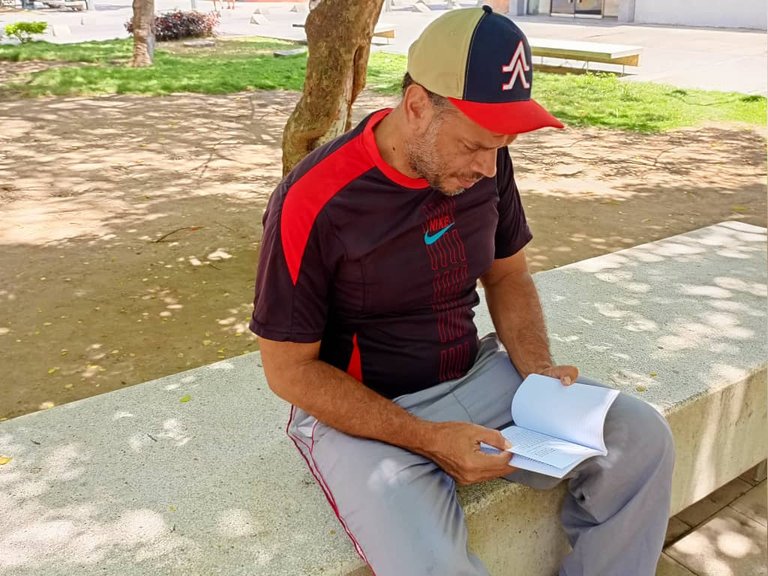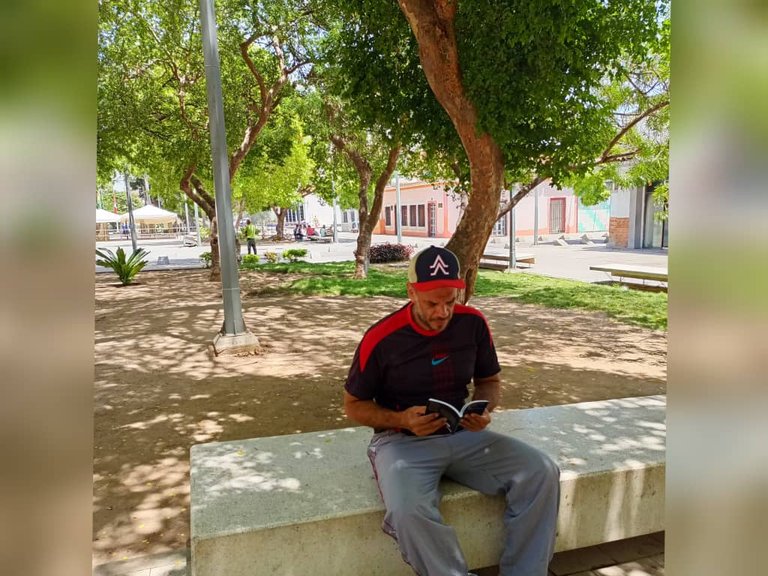Today I plunged into the depths of the book Hell was as Platon said by Venezuelan author Mariano Nava Contreras, an anthology full of erudition that exposes stories in a natural and close way. We will find diverse scenarios, particular language, historical events and dissimilar narrative perspectives.
To prepare this review I chose three stories that I consider outstanding for their proposals, the first one is entitled The blues of the Mocha Goat. Here, and in many of the stories, we can observe a contrast between two cities: New York and Maracaibo - Venezuela. The narrative goes back to a transcendental event in the country, the discovery of oil deposits.

A gringo engineer is the protagonist of the story. Faced with the discovery, he acts cautiously, aware of its economic importance, since it is the largest oil reserve in the world. The contrast is justified because in New York there are investors, who do not think to leave behind the cold of the American metropolis and disembark in the Venezuelan west. The author Nava Contreras possesses a high degree of erudition since he is capable of reconstructing diatint but plausible scenarios, as if he had been present at the moment in which the authentic story unfolded.
The following text is entitled "Utopia" and there the narrator, through a series of descriptions, places the reader in a contemplative scenario, where imagination plays a vital role. The story introduces us to someone capable of manipulating matter and, therefore, creating natural and material elements. Once the narrator leads up to a certain point, the reading leans towards the logic of the real world, so the imagination of the universe presented crumbles in moments.

This story is richly descriptive, allowing the reader to momentarily suspend credulity. However, abruptly, it returns to realism, to the place where the traces of the past are erased and illusions collapse.
The third story in my selection is called The Tradition of Confucius and Lao-Tse. Again the narrator plays with the reader's perception and offers him a first scene in which he displays his knowledge of Eastern philosophy, comparing it with the absence of mysticism that exists in America. He leans towards the teachings offered by the millenary Chinese culture as he wanders through various postulates.

But later on, the narrator tells us that all his thoughts were made from the appearance of Mr. Miyagi in the movie "Karate Kid", the original one from the 1980s. At this point, pop culture references are strung together and mixed with Asian culture to offer a particular vision. At the end, the narrator is watching the film in a movie theater, moved by what he thinks and what happens on the screen.
Mariano Nava Contreras seems to me to be a very interesting author because he is strongly influenced by the work of Jorge Luis Borges. By using referents of world and local culture, this author requires an astute reader who has in his mental archive the ideal images to understand his proposal.

His style pleases me, he is aware of his level of erudition and his art of storytelling. He is able to wallow in suggestive descriptions that demonstrate his extensive command of language, while playing with the reader to the point that none of his stories are predictable, so that each of his tales is a challenge to the senses.
Versión en EspañolHoy me sumergí en las profundidades del libro El infierno era como decía Platón del autor venezolano Mariano Nava Contreras, una antología llena de erudición que expone de forma natural y cercana las historias. Nos encontraremos entonces con escenarios diversos, lenguaje particular, acontecimientos históricos y perspectivas narrativas disímiles.
Para elaborar esta reseña elegí tres cuentos que considero sobresalientes por sus propuestas, el primero se titula El blues de la Cabra Mocha. Acá, y en muchos de los cuentos, se puede observar un contraste entre dos ciudades: Nueva York y Maracaibo - Venezuela. La narrativa se remonta a un hecho trascendental en el país, el descubrimiento de yacimientos petroleros.

Un ingeniero gringo es el protagonista del relato. Ante el hallazgo, actúa con cautela, es consciente de la importancia económica ya que es la mayor reserva de petróleo en el mundo. El contraste se justifica porque en Nueva York están los inversionistas, que no lo piensan para dejar atrás el frío de la metrópolis estadounidense y desembarcar en el occidente venezolano. Se advierte que el autor Nava Contreras posee un alto grado de erudición ya que es capaz de reconstruir escenarios distintos pero verosímiles, como si hubiese estado presente en el momento en que se desarrolló la historia auténtica.
El siguiente texto se titula Utopía y allí el narrador, a través de una serie de descripciones, ubica al lector en un escenario contemplativo, donde la imaginación juega un papel vital. La historia nos presenta a alguien capaz de manipular la materia y, por lo tanto, crear elementos naturales y materiales. Una vez que el narrador conduce hasta cierto punto, la lectura se inclina hacia la lógica del mundo real, así que la imaginación del universo planteado se desmorona en instantes.

Este relato tiene una gran riqueza descriptiva, lo cual permite al lector suspender momentáneamente su credulidad. Sin embargo, de manera abrupta, se retorna al realismo, al lugar donde se borran las huellas del pasado y se derrumban las ilusiones.
El tercer cuento de mi selección se llama La tradición de Confucio y Lao-Tse. De nuevo el narrador juega con la percepción del lector y le ofrece una primera escena en la cual despliega sus conocimientos sobre la filosofía oriental, comparándola con la ausencia de misticismo que existe en América. Se inclina por las enseñanzas que ofrece la milenaria cultura china en tanto se pasea por varios postulados.

Pero más adelante, el narrador nos indica que todos sus pensamientos se hicieron a partir de la aparición del Sr. Miyagi en la película "Karate Kid", la original de la década de los ochenta. En este punto se encadenan referencias de la cultura pop y se mezclan con la asiática para ofrecer una visión particular. Al final, el narrador está contemplando el filme en un cine, conmovido por lo que piensa y lo que su vez sucede en la pantalla.
Mariano Nava Contreras me parece un autor muy interesante porque se advierte en él una gran influencia de la obra del maestro Jorge Luis Borges. Al utilizar referentes de la cultura mundial y local, este autor requiere de un lector sagaz que disponga en su archivo mental las imágenes ideales para comprender su propuesta.

Su estilo me agrada, es consciente de su nivel de erudición y de su arte para narrar. Es capaz de regodearse en sugerentes descripciones que demuestran su amplio dominio del lenguaje, en tanto juega con el lector hasta el punto de que ninguno de sus relatos es predecible, así que cada uno de sus cuentos constituye un desafío para los sentidos.
✓Photos from my personal gallery, edited with Fotocollage.
✓Text translated with DeepL.
✓Fotos de mi galería personal, editadas con Fotocollage.
✓Texto traducido con DeepL.